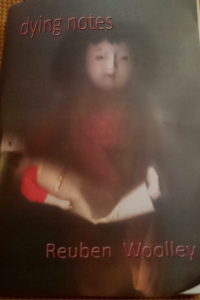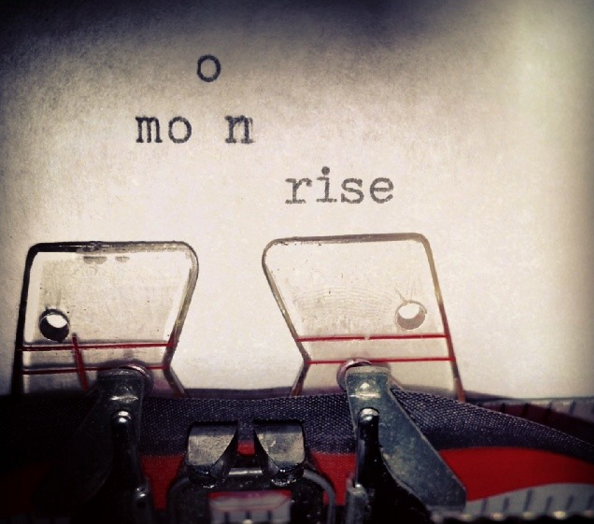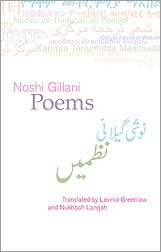dying notes by Reuben Woolley, Review #20
-Reviewed by Claire Trévien-
The last time we reviewed an erbacce-press title, things went a bit pear-shaped in the longest comment thread we’ve ever had, and some off-website threats to me. The root of all this was reviewer Harry Giles praising the content, but finding fault with the design of the pamphlet, calling the presentation ‘cheap’, in ‘characterless paper stock, unconvincing typesetting and a slightly pixelated cover – which sells the poems short.’
I must admit I’ve not been too keen to review erbacce titles ever since (who would be?) but when Reuben Woolley sent me his pamphlet, it felt unfair to penalize the writers because of their publisher, so here we go.
At the risk of attracting more ire, Giles’ comments still hold true, the pamphlet’s design isn’t its strong point, the cover’s text belongs in an enthusiastic kindergarten project, and the poems inside are crammed in haphazardly.
None of this is Woolley’s fault of course, and his writing thankfully elevates the publication as a whole. dying notes reminds me of Zuihitsu Poetry, poems made out of fragments of notes, observations, diary entries and so forth. In that sense, the cramming of poems works, giving the sense of different notes being pegged up on a line to dry.
There are two main things that need to be pointed out about dying notes: that these are contemporary poems in the best sense, and that Woolley uses punctuation with a purpose. It’s great to see a punctuation device be used consistently throughout a whole pamphlet. The effect is to create poems that feel slightly off-key, they interrupt your reading and force you not only to look at the words but the phrasing too:
lighting preludes
. i stretch
for higher registers
, twisting cords
for gelded agreementa deep beat
on dried skin , taut
. they’ve all
got rhythm
I think the punctuation works particularly well in the extract above, from the poem ‘breath’, where each beat of punctuation forces you to consider the rhythm of breathing. The ending makes clear that this poem is a reference to Eric Garner’s final words, ‘I can’t breathe’ before being chocked to death by an NYPD officer. Like many poems in this pamphlet, Woolley reacts to contemporary tragedies, and the punctuation and fragmentary nature of his poems feels like a respectful response to horror. It acknowledges that the poet hasn’t had that direct experience while also wanting to bring it to light.
There is a feeling of detachment in many poems, or at least a desire for it, as in ‘unreal’, where the narrator steps into his ghost, ‘no permanent / home / not here’. In ‘small is’, he declares ‘we’ll be small again’ concluding:
& no-one asks
what the grass thinks
which feels both resigned and hopeful. Perhaps that is what I find most interesting about dying notes: that there’s no easy resolutions in these poems, no soaring note of illumination. These are poems that allow themselves imperfect endings, unstitched punctuation, dichotomies allowed to co-exist.
This December, I have given myself the task of reviewing one pamphlet a day to raise money for next year’s Saboteur Awards. You can help by donating, or sharing the link using the hashtag #pamphletparty. I have given myself the aim of writing at least 300 words for each, a lower word-count than the usual reviews on Sabotage, in the hopes of making it more manageable! Here’s a link to the previously published reviews in this project!







Thank you very much, Claire.
A very insightful review from Claire – you must be very proud, Reuben.
I am indeed, Stella.